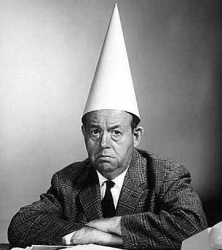
Our story begins with a note that Samuel has died and all of Israel gathered to mourn his death, recognizing that he spoke on behalf of God’s will. It was, then, God’s will for David to be king, but King Saul was still living and it was Saul’s intent to thwart God’s choice and to kill David. So David, with 600 of his warriors, is living as a fugitive, hiding and avoiding the armies of Saul that pursue him. And that means that, while Nabal’s shepherds were out in the wild, leading the sheep from place to place so that they could graze, they were alongside David’s army. And David was already acting like a good king – having been a shepherd himself – by protecting Nabal’s shepherds from bandits and predators, never taking advantage of them for their own sake. One of Nabal’s shepherds puts it this way: “… the men were very good to us, and we suffered no harm, and we never missed anything when we were in the fields, as long as we were with them; they were a wall to us both by night and by day, all the while we were with them keeping the sheep.”
So, when the time of shearing came, David sent 10 men as emissaries to Nabal, to offer him peaceful greetings, to offer themselves as his servants, and to request that Nabal acknowledge their kindness with the request, “Please give whatever you have at hand to your servants and to your son David.” It was all very proper, and in fact, a very humble solicitude by David to someone who, unknowingly, was in his debt.
But Nabal is a fool and a fool says in his surly and mean heart that there is no God. “There is no God” means that Nabal’s prosperity is due to himself alone, with no thanksgiving due to the likes of David. “There is no God” means that Nabal is not indebted to anyone, let alone obligated to open his hand in generosity to those who are in need. And, most importantly for our story, “There is no God” means that Samuel has not spoken on God’s behalf, that David is not, in fact, the one chosen by God to be Israel’s king. So, Nabal, the fool, responds to David’s proper and humble request with a reply that many of our most vaunted thinkers would argue is simply good economics: “Who is David? Who is the son of Jesse? There are many servants today who are breaking away from their masters. Shall I take my bread and my water and the meat that I have butchered for my shearers, and give it to men who come from I do not know where?”
Nabal is a fool because he imagines that his little fiefdom of prosperity is his own doing, that God had nothing to do with his life of ease.
We can see now that the biblical definition of a fool is quite complex. What makes a fool a fool is not a matter of intellect; it is a matter of morality. In its biblical definition, the ‘fool’ is one who acts and lives as though there were no God at work in the world. To say in one’s heart ‘There is no God’ means that there is no order or moral structure to the universe, it means that we are not interdependent with other creatures for life, it means that living with compassion and charity is only an option if we so choose, that we are simply free to live according to our caprice, without consequence and without obligation toward others who inhabit this space.
But, if we accept in our hearts that there is a God, then everything changes. To say in our hearts that there is a God means that love becomes the chief of all virtues, because the world is suddenly inhabited by others who have ultimate value and not just instrumental value according to what we can gain from them.
The biblical definition of a fool is not simply a matter of intellectual embrace of concepts. It has everything to do with whether one lives as a responsive, loving child of God in a world filled with God’s beloved creatures.
This post was adapted from Rev Davis. To find the original post, click here
BE HOLY.
BE A MAN.
 RSS Feed
RSS Feed